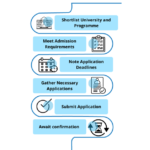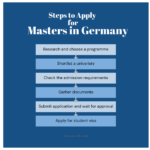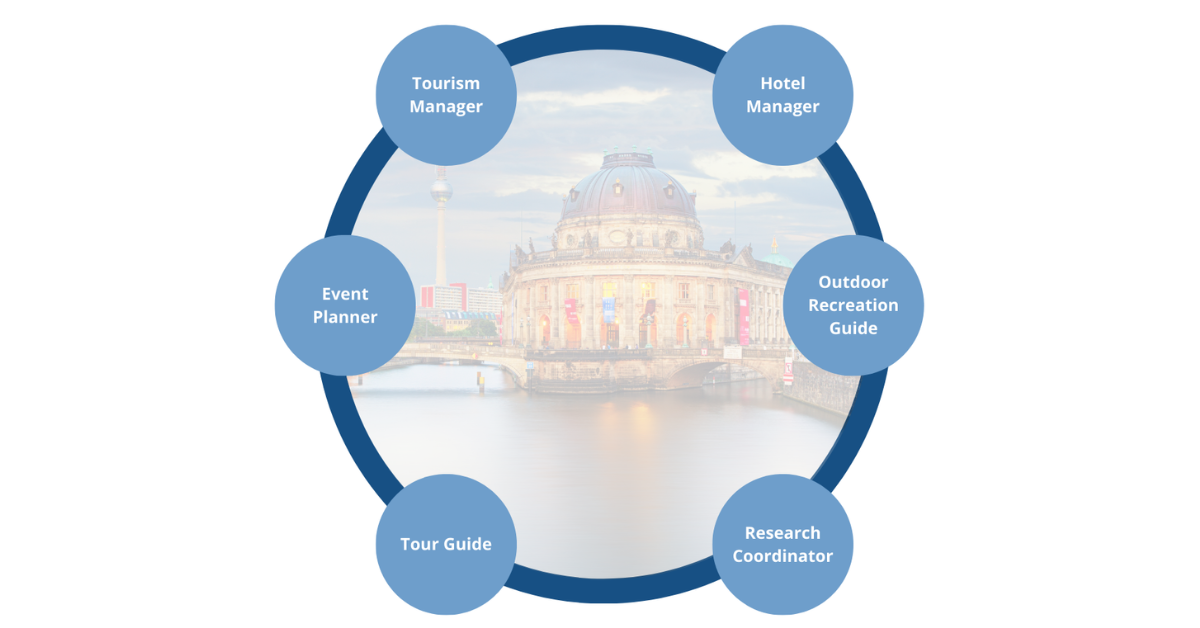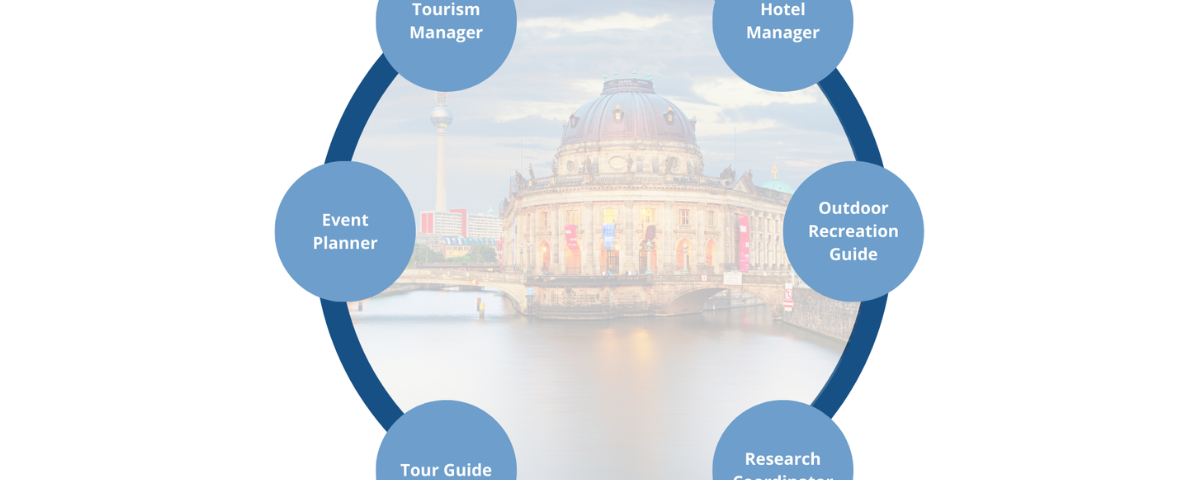
Things to know before studying in Germany: A Comprehensive Guide
July 7, 2024
Top Reasons to Pursue Your Master’s Degree in Germany: A Guide for International Students
July 18, 2024The Ultimate Guide to Studying Tourism and Recreation in Germany for International Students
Germany is a top choice for Tourism and Recreation students due to its rich history, stunning landscapes, and vibrant culture. With top-tier universities, a diverse cultural landscape, and a thriving tourism sector, Germany promises a unique and enriching educational journey. This comprehensive guide covers all aspects of studying Tourism and Recreation in Germany, from selecting the perfect university to navigating the admission process and discovering potential career paths.
Why Study Tourism and Recreation in Germany?

- Exceptional Academic Excellence: Germany is renowned for its outstanding academic programmes, with degrees that are internationally recognised. This provides graduates with a strong foundation for a successful career.
- Affordable Study Options: Universities in Germany offer affordable tuition fees, making high-quality education accessible to students from around the world without breaking the bank.
- Thriving Tourism Industry: Germany is one of the topmost tourist destinations due to its renowned hospitality, historical landmarks, and diverse attractions. The country's booming tourism sector provides students with numerous opportunities for internships, practical training, and valuable industry experience.
- Cultural Richness and Diversity: Germany is home to a treasure trove of cultural experiences and a population of diverse backgrounds. This diverse cultural setting not only broadens their horizons but also prepares them for a more interconnected world.
- Practical Experience and Internships: Universities in Germany believe in learning through practical training. Many programmes mandate internships and assignments that help students gain real-life experience along with their academic studies.
- Language Skills: While numerous programmes are available in English, studying in Germany also presents the opportunity to learn German, a valuable skill in the global job market. Being proficient in more than one language can significantly boost your career prospects.
- Economic Stability and Job Market: Germany is the third-largest economy in the world. The robust job market provides excellent employment opportunities for graduates, both within the country and across Europe.
- Networking and Professional Growth: Germany hosts a variety of international conferences, trade fairs, and industry events related to tourism and hospitality. These events help students network with professionals, industry leaders, and potential employers.
- Research and Innovation: German institutions are leaders in research, particularly in sustainable tourism practices. Students can access cutting-edge research facilities and resources, encouraging innovation and advanced learning.
Studying Tourism and Recreation in Germany means gaining access to high-quality education, practical experience, and numerous cultural and professional opportunities. This unique blend not only enriches students' academic understanding but also provides them with useful skills necessary for a prosperous career. With Germany's rich history and diverse landscapes, students can immerse themselves in a vibrant cultural environment while building a solid professional network. Consequently, Germany stands out as an ideal destination for aspiring tourism professionals seeking to excel in their field.
Among the many prestigious institutions in Germany, the European Institute of Innovation, Entrepreneurship, and Technology (EIIET) is an excellent choice for studying Tourism and Recreation. EIIET offers unique programmes focused on sustainable tourism, combining environmental science with tourism management. This blend of academic rigour and practical application makes EIIET a top destination for aspiring tourism professionals.
What do Tourism and Recreation studies involve?
Tourism and Recreation studies encompass both theoretical and practical exploration into the fields of tourism, hospitality, and leisure. These programmes equip students with skills to prepare them for careers in the tourism and recreation sectors.
For instance, some of the core subjects for the M.A. and B.A. programmes in Tourism and Recreation at the European Institute of Innovation, Entrepreneurship, and Technology (EIIET) include:
- Gastronomy
- Design of catering venues
- The quality of hotel and catering services
- Marketing services HoReCa
- Business and Hotel Management
- Hotel Accounting and Finance Management
- Spa & Wellness
- International Tourism Management
With these subjects, students engage in a broad set of business skills, including strategic management, marketing, financial planning, and customer service. This prepares them for successful careers in the tourism and recreation industry. Additionally, having a degree in Tourism and Recreation enhances job prospects.
Career Opportunities
Graduates in Tourism and Recreation are presented with diverse and exciting career opportunities in today's dynamic marketplace. These positions typically consist of crafting tourism strategies, supporting marketing efforts, and ensuring the satisfaction of customers or guests. Additionally, let's explore some of the top career opportunities available in the tourism and recreation fields. From developing innovative travel experiences to managing recreational facilities, these roles are essential in shaping the future of tourism and recreation. Moreover, professionals in this industry play a vital role in enhancing the overall travel experience and promoting sustainable tourism practices.
Here are some key career paths that await graduates in this dynamic sector:

- Tourism Manager: A tourism manager oversees the operations and management of tourist destinations. They ensure that visitors' experience is seamless and enjoyable. This involves not only managing staff but also developing effective marketing strategies, meticulously managing budgets, and continuously working to enhance customer satisfaction. They have a crucial role in the growth of the tourism sector.
- Hotel Manager: The critical role of a hotel manager is to oversee the hotel's daily operations and ensure that the customers have a remarkable stay. Their responsibilities include managing the staff and the various departments, handling the hotel finances, and developing marketing strategies.
- Event Planner: An event planner coordinates and organises events such as meetings, conferences, and company gatherings. Their responsibilities include organising high-standard services as required by the desired event.
- Tour Guide: Tour guides conduct tours, providing insightful and captivating information about attractions, historical locations, and cultural sites. This position requires strong communication abilities and extensive knowledge of the region.
- Recreation Coordinator: Recreation coordinators design and organise recreational programmes and activities for resorts, cruise ships, and community centres. In addition to planning, they are responsible for ensuring these activities are safe, enjoyable, and meet participants' diverse interests.
- Outdoor Recreation Instructor or Guide: This role involves leading groups in various outdoor activities such as hiking, kayaking, and climbing, ensuring safety and enjoyment. Responsibilities include organising activities, educating participants about the environment, and providing excellent customer service. By combining a passion for the outdoors with the skills gained during their studies, graduates can create memorable and enriching experiences for participants.
Germany's thriving tourism industry presents numerous career opportunities for graduates. By earning a degree in Tourism and Recreation, you open the door to a fulfilling career that merges your love for travel, culture, and excellent customer service. Additionally, the practical experience gained during your studies will equip you with the skills needed to excel in this dynamic field. For instance, many graduates find themselves working in top travel agencies, hospitality management, or cultural heritage organisations. Moreover, the networking opportunities available through internships and industry events can significantly boost your career prospects.
How do I get started?
- Shortlist Universities and Programmes: Research the various programmes offered by German universities. Select a programme that matches your interests and career aspirations.
- Check Admission Requirements: Before proceeding, ensure that the admission requirements for the chosen programmes align with your qualifications. Typically, you can find the admission requirements outlined on the university websites. By verifying these criteria, you can confirm your qualifications for your desired programme.
- Prepare Documents: Collect all necessary documents for your application. These may include academic transcripts, language proficiency statements, statements of purpose, and recommendation letters.
- Apply to University: Apply to the university of your choice. Make sure to recheck your documents before submitting them to ensure they are correct.
- Seek Financial Aid: Look into scholarship opportunities and financial aid provided for international students. Additionally, organisations such as DAAD (German Academic Exchange Service) offer funding to international students.
- Plan Your Stay: Once accepted to the university, plan your stay in Germany. This involves looking for accommodation, learning about Germany, and knowing the visa requirements.

